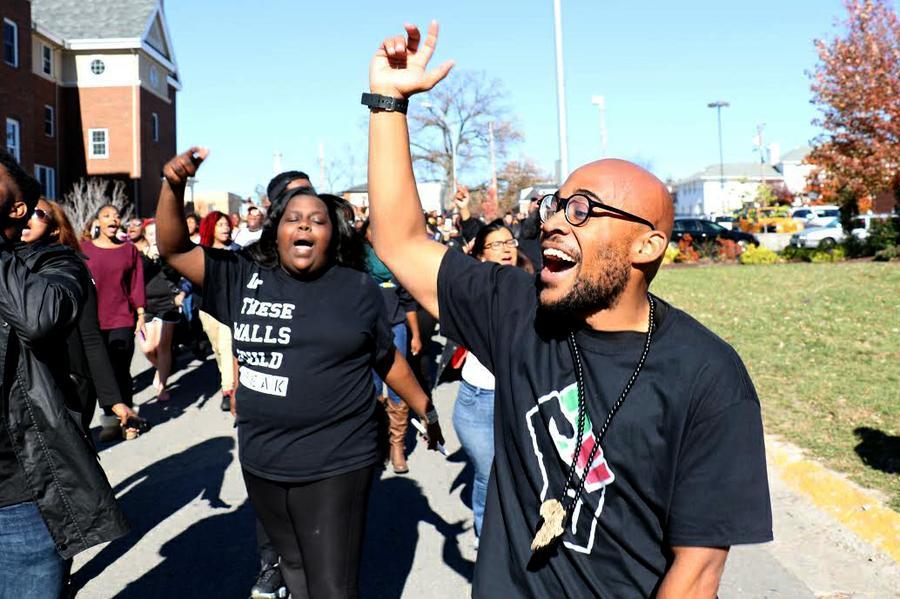
Jonathan Butler doesn’t see himself as a leader.
“I view myself as an engaged community citizen who has a specific lived experience,” Butler said. “I don’t think I’m anybody special, I don’t think I’m a celebrity. That’s not me. I don’t do it for those reasons.”
Butler, a graduate student, was one of the 11 founding members of the Concerned Student 1950 movement, and his hunger strike generated national media attention at MU last fall. Butler also [led graduate worker protests in August](https://www.themaneater.com/stories/2015/8/26/start-movement-graduate-students-walk-out/) and was involved with the MU4MikeBrown movement last school year.
Coming from a religious background, Butler was taught from a young age to give back to his community. However, it was the Ferguson protests that transformed his view of activism.
“Ferguson is what truly radicalized my idea of what it meant to be free, to fight for justice, to fight for equality, to fight for what’s right,” Butler said. “Seeing what happened in Ferguson, and seeing that those people were giving everything that they have — why shouldn’t I be able to do the same?”
Butler has spoken at universities, communities and youth groups across the country since November. He said it has been a great experience.
“It has been a blessing to be in these different settings and spread that education that you do have a voice, you are strong, your life matters,” Butler said. “It’s great to spread that message and learn from the people that I’m sharing with.”
Berkley Hudson is the chairman of the Faculty Council Committee on Race Relations and has worked with Butler, a committee member, since the group was formed in May 2015. In one of the meetings leading up to the hunger strike, Hudson remembers Butler saying that he was not angry but optimistic.
“I will always be angry at injustice,” Butler said. “I will always be angry at things going wrong in society. I never want to be complacent with the issues going on in our world. Although I may be protesting with a megaphone or am giving speeches or getting people to sign a petition, and it may seem like I’m pessimistic about life, I’m really not. I love Mizzou, I love my community, and I love this world enough to advocate for equality. The reason why I’m doing all these things is because I’m optimistic that change can happen.”
Butler said that he has not yet taken the time to step back and process what happened last November, but he may have that opportunity when he graduates this May.
Butler does not care about the legacy he leaves at MU; it isn’t important to him. What Butler does care about is the narrative from last semester. He doesn’t want it to disappear.
“It is my hope and my prayer that it is not just a whitewashed narrative, but a narrative showing the multiplicity of identities,” Butler said. “Until the history books recognized the community of people who were involved, I don’t think the story will really be told.”